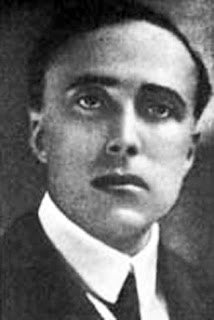Anti-Fascist politician became skilled diplomat
 |
| Manlio Brosio |
Brosio, whose distinguished diplomatic career had seen him hold the office of Italian ambassador to the Soviet Union, Britain, the United States and France, was appointed to lead NATO in 1964 and remained in post until 1971, the second longest-serving of the 13 secretary-generals so far.
Known for his congenial personality, he insisted that others behaved courteously and with respect for etiquette, while conducting himself with self-restraint. This enabled him to maintain a good relationship with all NATO ambassadors and helped him manage a number of difficult situations.
Some critics felt he was too cautious but his low-key approach is now credited with keeping NATO together during the crisis that developed in 1966 when General Charles de Gaulle, the French president, threatened the organisation's existence by insisting that NATO removed all its military installations from France within a year.
France was one of three nuclear powers among the 15 members of NATO and key to the alliance's Cold War strategic planning but de Gaulle was of the view that the United States was too dominant and feared that France could be drawn into a conflict it did not want.
NATO had to move its headquarters from Paris to Brussels as a result but with Brosio overseeing attempts to reach a solution as France withdrew from the command structure, de Gaulle did ultimately give an assurance that France would participate in the defence of Western Europe in the event of a Soviet attack.
This remained France's position until 2009, when president Nicolas Sarkozy took them back into the command structure.
Brosio always encouraged the member nations to develop a diplomatic strategy towards the Soviet Union rather than simply a military one and his stance led indirectly to the Nixon administration in the United States negotiating with the Soviets on arms control and nuclear weapons limitation.
 |
| The monument to Italian partisans killed in battle at the summit of Monte Grappa |
After the war he entered politics, soon becoming a leading figure within the so-called "liberal revolution", but after being threatened by Mussolini's secret police over what they saw as anti-Fascist activity he returned to practising law.
By this time, the socialist politician Giacomo Matteotti had already been murdered following his denouncement of the Fascists in parliament and it was clear to Brosio and many on the left or centre-left of Italian politics that their lives would be in danger were they to continue.
Following the Allied invasion of Italy in 1943. Brosio joined the resistance movement in the north and became a member of the National Liberation Committee. As secretary of the Italian Liberal Party he was elected to serve in Italy's immediate post-war governments, ultimately as Minister of War under Alcide de Gasperi.
He began his diplomatic career as Italy's ambassador in Moscow in 1947, moving to London in 1952, to Washington in 1955 and finally to Paris in 1960.
Awarded the Knight Grand Cross of the Order of Merit of the Italian Republic in 1955, he was given the United States' Presidential Medal of Freedom by Richard Nixon in 1971.
Married to Clotilde but with no children, Manlio died in Turin after a short illness in March 1980, aged 82. He was buried in a family tomb in Venaria Reale, near Turin.
Travel tip:
Monte Grappa is a mountain in the Venetian Pre-alps, rising to 1,775 metres, situated some 27km north of Bassano del Grappa, in Vicenza province in the Veneto region. It was the scene of military action in both World Wars. On the summit there is an extraordinary memorial to those killed there in the Second World War, when Nazi and Fascist troops slaughtered huge numbers of partisans who had sought refuge. The monument is composed of five concentric circles, laid on top of each other to form a pyramid, containing the remains of 12,615 soldiers. On the top there is the little sanctuary of the Madonnina del Grappa.
 |
| The Royal Palace at Venaria Reale |
Venaria Reale is a town of around 35,000 inhabitants situated about eight kilometres north-west of Turin, notable for its Royal Palace, one of the residences of the Royal House of Savoy, built in 1675 for Duke Charles Emmanuel II, who wanted a base for his hunting expeditions. The name Venaria Reale derives from the Latin Venatio Regia, meaning 'Royal Hunt'. The house was added to the UNESCO Heritage List in 1997.
(Photo of Monte Grappa monument by Gabriele dalla Porta CC BY-SA 2.0)
(Photo of the Royal Palace at Venaria Reale by Valerio Manassero CC BY-SA 3.0)
Home


